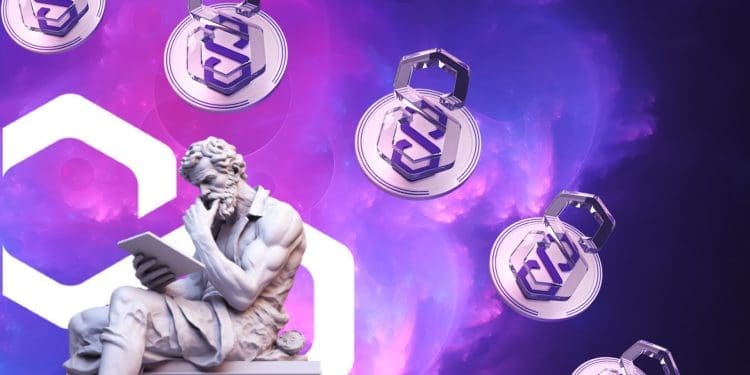- POL contracts have been deployed to the Ethereum mainnet, marking a major milestone for Polygon 2.0 and the next generation of Layer 2 scaling.
- POL will power a vast ecosystem of ZK-based Layer 2 chains, enabling staking and validation across multiple chains.
- Polygon 2.0 roadmap continues with launching a new staking layer, upgrading Polygon PoS to zkRollup, and implementing advanced interoperability between Layer 2s.
Today marks a major milestone on the Polygon 2.0 journey toward building the Value Layer of the Internet. The upgrade to POL has been initiated on the Ethereum mainnet after months of development, community consultation, and a successful testnet launch.
What is POL?
POL, a next-generation hyperproductive token, will power a vast ecosystem of zero knowledge-based Layer 2 chains via a native re-staking protocol that allows POL holders to validate multiple chains and perform multiple roles on each of those chains (sequencing ZK proof generation, participation in data availability committees, etc).
What’s Next for Polygon 2.0?
The POL upgrade also paves the way for the next series of milestones in the Polygon 2.0 roadmap. That list includes launching a new staking layer to power Polygon L2s, upgrading Polygon PoS to zkRollup, and implementing advanced ZK-powered interoperability and shared liquidity protocol for all these L2s. See Polygon 2.0 Vision and PIP-18 Polygon 2.0 Phase 0 – Frontier for more details.
Contract Address
The contract address for the POL token on Ethereum is 0x455e53CBB86018Ac2B8092FdCd39d8444aFFC3F6.
Check it out here: https://etherscan.io/address/0x455e53CBB86018Ac2B8092FdCd39d8444aFFC3F6
What Should You Do?
- MATIC holders/PoS/zkEVM users: Nothing has changed yet. Provide feedback on proposed upgrades.
- Node operators/stalkers: Monitor for new software versions when PIPs are approved. Give feedback.
- Developers: Review PIPs. Ensure smart contracts are not broken.
- Join the discussion on the forum to participate in governance.
The Polygon 2.0 vision will bring fundamental change, enabling equitable access to the internet’s value. Together, we can build the Internet of the future – decentralized, scalable, and interoperable.














